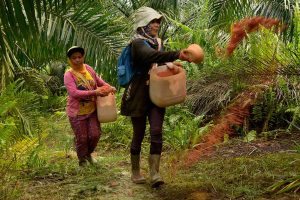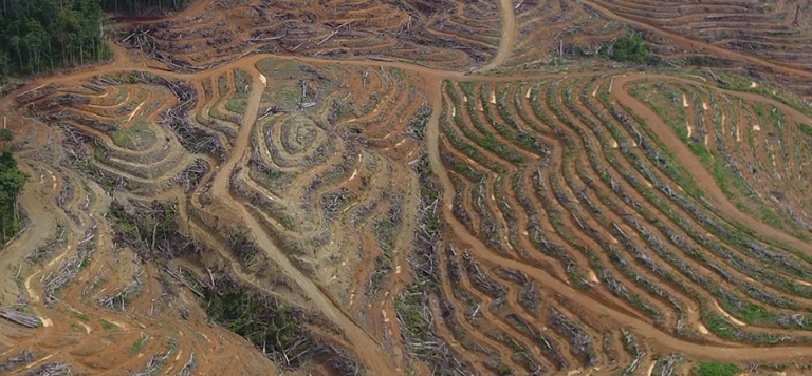Indonesia, the global leader in palm oil production, faces a critical setback in its environmental journey. After a decade of declining deforestation linked to palm oil plantations, a concerning trend has emerged: deforestation rates have spiked for the second consecutive year. This essay delves into the resurgence, its implications, and potential solutions for a sustainable future.

The 2023 data paints a stark picture. Compared to 2022, deforestation for palm oil plantations increased by 36%, clearing 30,000 hectares (74,100 acres) of Indonesian forests. Notably, the surge has shifted geographically, with Indonesian Borneo and Papua witnessing the brunt of the destruction, unlike the historical concentration in Sumatra. This shift raises additional concerns about the impact on biodiversity hotspots and indigenous communities in these regions.
Furthermore, a significant portion (one-third) of the cleared land comprises carbon-rich peatlands. This amplifies the environmental damage as peat decomposition releases vast amounts of greenhouse gases, contributing to climate change and potentially triggering devastating wildfires.
Investigations reveal involvement of companies linked to the major conglomerate First Resources, despite their “no deforestation, no peat, no exploitation” pledge. This highlights the ongoing challenges with enforcing sustainability standards and combatting the use of “shadow companies” to circumvent regulations.
Despite these setbacks, glimmers of hope remain. The European Union’s upcoming deforestation regulation aims to ensure products traded within the bloc are not linked to deforestation anywhere in the world. While concerns exist about its impact on smallholder farmers, it could incentivize the Indonesian palm oil industry to embrace truly sustainable practices and comply with stricter regulations.
Moving forward, Indonesia must address the root causes of this resurgence. Combating illegal plantations, strengthening law enforcement, and upholding sustainability commitments are crucial steps. Additionally, supporting smallholder farmers in adopting sustainable practices while ensuring their livelihoods are protected will be vital.
Indonesia has proven it can achieve progress in reducing deforestation. The current challenge presents an opportunity to reaffirm its commitment to a sustainable future, not just for its environment but also for its economy and the global fight against climate change. The world watches with anticipation as Indonesia grapples with this critical crossroads.







